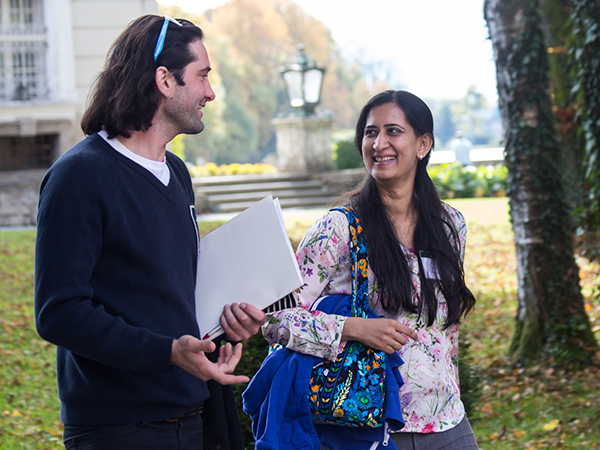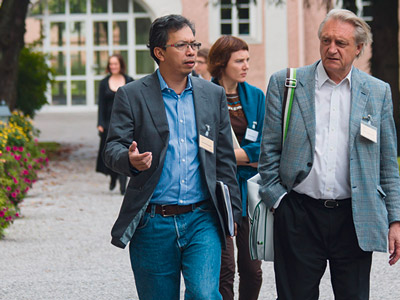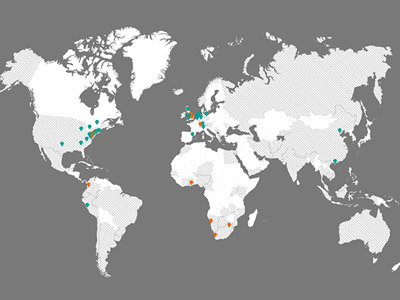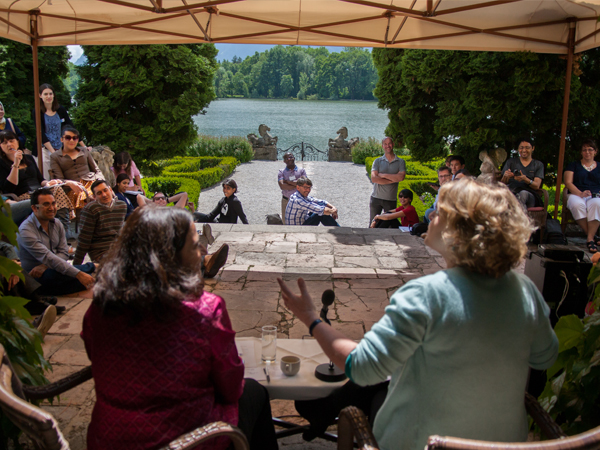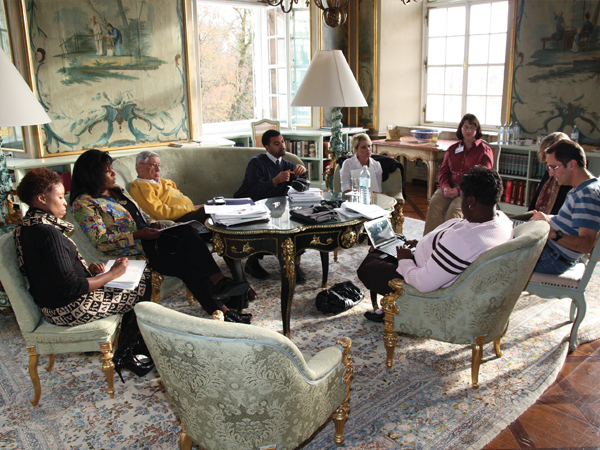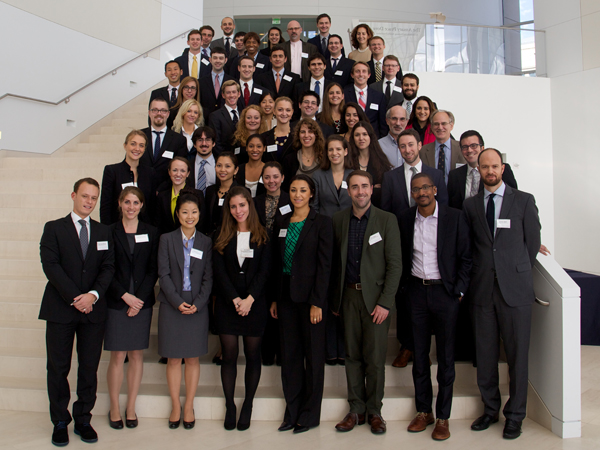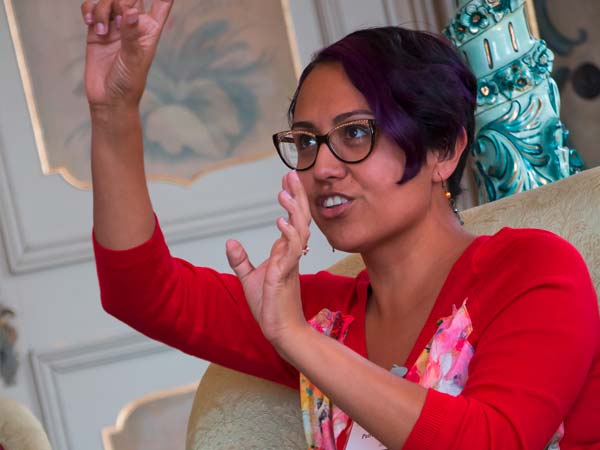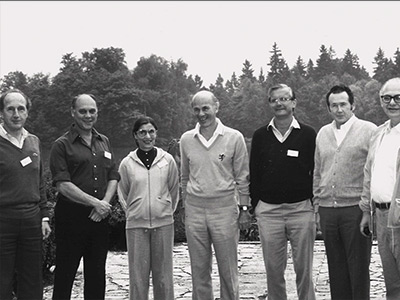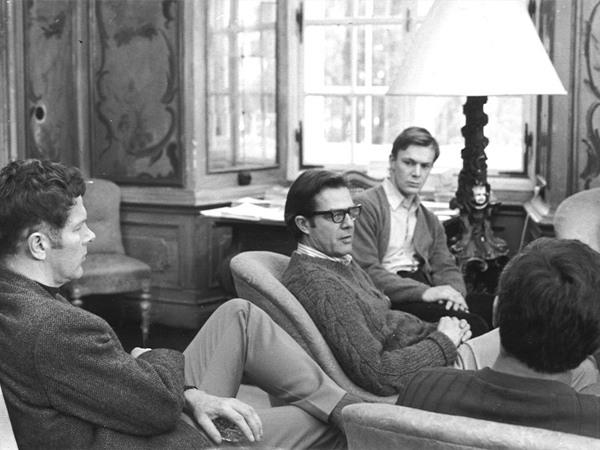Salzburg Seminar American Studies association (SSASA)
Why America Still Matters
The world has changed since the Salzburg Seminar in American Studies was first convened in 1947 – so too has the organization. But although now more “global” in outlook, Salzburg Global Seminar still recognizes the importance of American Studies.
When the first session of the Salzburg Seminar in American Studies was convened in the summer of 1947, the world was a very different place – as was the United States’ place within it.
Europe was devastated by World Wars less than three decades apart. Schloss Leopoldskron itself also bore the scars of war: windows had been shattered and walls sprayed with shrapnel when a bomb landed in the nearby lake, and the property had only just been repatriated to the widow of Max Reinhardt, the pre-war owner of the Schloss who had fled Nazi persecution in 1938. America, conversely, was thriving in its post-war industrial boom and taking an increasingly prominent place in the world – politically, economically and culturally – as the former colonial powers of Europe faded. Wanting to bring together bright young minds who had been enemies a mere two years earlier, the three founders of the organization that would become Salzburg Global Seminar – Americans Dick Campbell and Scott Elledge and Austrian Clemens Heller – used the medium of American Studies, as in post-war Europe there was a keen interest and indeed fascination with anything related to American life and values. As the co-chair of that first-ever session, literary historian F. O. Matthiessen assured the Europeans and Americans gathered, “none of our group has come as imperialists of Pax Americana to impose our values on you,” and that the program would consider not only the strengths of American democracy, but also its “excesses and limitations.” Today, those excesses and limitations have become all the more abundantly clear: the US Congress is frequently in deadlock, the US continues to be one of the world’s biggest polluters, economic and racial inequalities and tensions are growing, and the US’ hegemony is waning as China’s power rises. This change in America’s situation at home and abroad, together with the increasingly global outlook of the now Salzburg Global Seminar, inevitably raises questions: does America still matter—and does American Studies still have a place at Salzburg Global Seminar?
The answer from Marty Gecek, symposium director of the Salzburg Seminar in American Studies Association (SSASA), is an emphatic yes.
“Every session that this institution does is affected by America in some way,” the long-serving director insists. Concerned that American Studies was becoming sidelined as the Salzburg Seminar started to expand its outlook beyond the US and Europe, Gecek was part of the team that founded the Salzburg Seminar American Studies Center (ASC) in 1994. (See BELOW) The ASC was generously funded by the United States Information Agency (USIA), a US agency devoted to public diplomacy (now part of the US State Department), enabling Salzburg Seminar to organize and host 32 two-week sessions between 1994 and 2001, covering topics as diverse as American literature and linguistics, American history, American foreign policy, and IT and its role in education provision.
Following the end of the $9 million grant, SSASA was established in 2004, originally as an alumni association for participants of ASC programs. It has since expanded its outreach beyond alumni and is a member of the American Studies Network, an association of 17 independent centers for American Studies in 11 European countries. Gecek, although officially retired since 2003, continues to organize at least one symposium per year on a pro bono basis. “American Studies enables you to see all of Salzburg Global Seminar’s programs through an American lens,” explains Gecek.
“Every session is affected by America in some way. Whether you're talking about HEALTH, culture or geopolitics – these things are all affected by and will affect America.”
“Whether you’re talking about technology in agriculture, health issues, culture or geopolitics – these things are all affected by and will affect America.”
Indeed, SSASA programs have continued to adopt this same broad view of American Studies as established by the first 30 years of Salzburg Global’s program and continued by the ASC. Programs from the past three years have examined not only American culture and its global influence, such as with the session Screening America: Film and Television in the 21st Century in 2012, but also geopolitics – Continuity and Change in US Presidential Foreign Policy: Plans, Policies and Doctrines (2011); diversity – Resistance and Readiness: Immigration, Nativism and the Challenge of Ethnic and Religious Diversity in the US and Europe Today (2012); and urban planning – Sustainability and the City: America and the Urban World (2013).
Each of these topics has a global resonance as policies, demographics and societies change the world over. And while America may soon no longer be the world’s sole hegemonic power, economically, militarily or culturally, many countries still follow its lead.
Just as in 1947, Salzburg Global Seminar, however, is not presenting America as the one and only example to follow. “It used to be ‘We’re the biggest and the best,’ but I like to think that America has become more humble,” says Gecek. “I like to think that America looks abroad and sees wonderful things happening around the world and realizes that America is not leading whatsoever on health care and climate change, for example. There are certainly other countries that are doing much better things, so America has a lot to learn and I think people are becoming more cognizant of that fact.”
For further information, please see: ssasa.SalzburgGlobal.org
For audio interviews with speakers from the SSASA 2013 program: Sustainability and the City: America and the Urban World, please see: soundcloud.com/salzburgglobal/sets/ssasa-11






